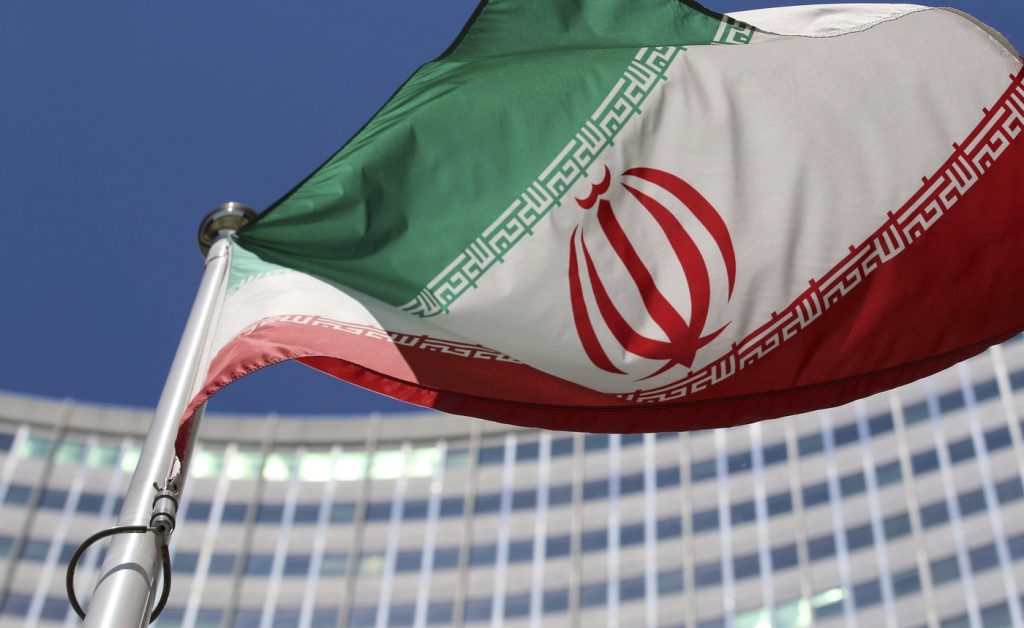UNITED NATIONS (AP) — The U.N. Security Council is poised to vote on a resolution this Friday regarding the potential reimposition of sanctions on Iran in relation to its nuclear program. European officials have cautioned Tehran that time is quickly running out to reach a diplomatic agreement before the upcoming annual gathering of world leaders at the U.N. next week.
The resolution, initiated by South Korea, who currently holds the presidency of the 15-member Security Council, requires a minimum of nine votes to prevent the sanctions from coming into effect at the end of the month, as stipulated by the 2015 nuclear deal between Iran and world powers. Despite differing perspectives among council members, diplomats suggest there is insufficient support to eliminate all sanctions against Iran without imposing any conditions.
In an effort to revive the sanctions, France, Germany, and the United Kingdom triggered the "snapback mechanism" last month, which reinstates all U.N. sanctions that were in effect prior to the nuclear agreement. These sanctions encompass a conventional arms embargo, restrictions on ballistic missile development, asset freezes, travel bans, and a prohibition on the production of nuclear-related technology.
The snapback process is designed to be resistant to vetoes unless the most powerful members of the U.N. Security Council collectively agree to halt it. Although there has been a surge in diplomatic efforts between Iran and European nations in recent weeks, a resolution remains elusive, and indications point towards a high likelihood of sanctions being imposed.
In an interview on Thursday with Israel's Channel 12, French President Emmanuel Macron expressed confidence in the snapback decision, stating, "Yes, I think so because the latest news we had from the Iranians are not serious." Similarly, leaders from Germany and the European Union conveyed concerns to Iran during a call on Wednesday, asserting that Iran has yet to take essential steps to avert the reinstatement of sanctions at a time when the country is grappling with the ongoing ramifications of a recent conflict and an enduring financial crisis.
The EU's chief diplomat, Kaja Kallas, emphasized the urgency of finding a diplomatic solution regarding Iran's nuclear ambitions, noting, "The window for finding a diplomatic solution on Iran’s nuclear issue is closing really fast." She urged Iran to demonstrate credible progress in addressing the demands set forth by France, the U.K., and Germany, which includes full cooperation with the International Atomic Energy Agency (IAEA) and granting timely inspections of all nuclear sites.
Responding to these developments, Iranian Foreign Minister Abbas Araghchi asserted that the reimposition of U.N. sanctions lacks both legal and logical grounds. He highlighted a previous agreement between Iran and the U.N. nuclear watchdog, mediated by Egypt, which would provide access to all Iranian nuclear sites and require Tehran to disclose the whereabouts of its nuclear materials.
While specific details of this agreement have yet to be disclosed, IAEA Director Rafael Grossi provided insights during a recent address to his agency's board of governors, mentioning that the document clarifies the protocols for inspection notifications and their execution. Grossi indicated that the agreement covers all nuclear facilities and installations in Iran, along with measures for reporting on all affected facilities, including details about any nuclear materials present.
Amid growing tensions, the recent conflict instigated by Israel against Iran saw both Israeli and American forces targeting Iranian nuclear sites. This military action has raised questions regarding Iran's stockpile of uranium, which is enriched to near weapons-grade levels. Should the snapback mechanism be activated, it is expected to escalate tensions between Iran and the West. The ramifications of this escalation remain uncertain, especially considering Iran’s historical threats to withdraw from the Nuclear Nonproliferation Treaty, reminiscent of North Korea's actions in 2003 that led to the development of atomic weapons.










